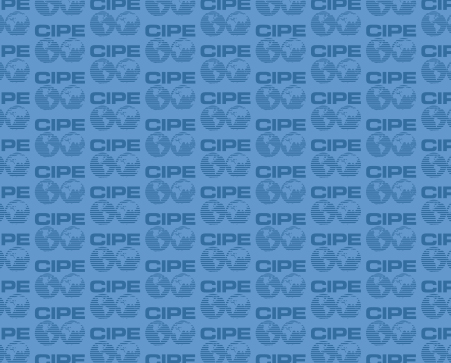
Each year on September 15, the UN observes the International Day of Democracy to celebrate efforts to promote and consolidate democracy around the world. Despite these efforts however, the realization of consolidated democracy continues to be a struggle for many reformers. This year, the UN has chosen a theme of “Engaging Young People in Democracy” and acknowledges that “study after study show declining faith among young people…with declining levels of participation.” Compounding this declining faith in democracy is a rising ideological competitor in the form of economically successful authoritarian regimes.
As much as young people are recognized as dreamers and agents of change, these characterizations tend to be the result of youth wanting to see an improvement in their quality of life. In emerging countries such improvements are often delivered through economic growth, and in cases such as China and Singapore youth populations can honestly say their standard of living has gotten better year after year. These examples can lead youth to become disillusioned with democracy, especially at a time when the world’s major democracies are suffering the aftereffects of a major financial crisis. Meanwhile, in the developing world, kickstarting growth in democratic regimes often takes time due to a need to build consensus and develop proper policies.
Quality of life, however, is not measurable only in terms of indicators such as income levels, consumption, and GDP — though almost all of the world’s most prosperous countries are democracies. Other, arguably more important aspects such as human rights, liberty, and freedom are also vital components. Since 2012, CIPE has been part of a consortium seeking to analyze the development paths of three emerging democracies (India, Brazil, and South Africa) in order to create an argument in support of democratic development.
After extensive research, various reports, and a number of international workshops, the Centre for Development and Enterprise (CDE) released a document titled, “The Democratic Alternative from the South: India, Brazil, and South Africa.” In the report, CDE and other participating think tanks find that democratic countries are indeed capable producing astounding results in terms of development. Furthermore, when paired with free-market reforms, democracies provide more inclusive growth as opposed to the oligarchic elites that tend to develop in authoritarian regimes and allow for greater recognition of human rights, which are far more valuable than economic expansion.
The report argues it is not democracy that holds these countries back from recognizing greater achievements, but a stagnation in market reforms and a hesitance to deepen and embrace the institutions that make democracy function.
In observance of the International Day of Democracy, CIPE’s Feature Service Article for the month of September features an interview with CDE Executive Director Ann Bernstein. Adapted from the video interview, the article explores the drive behind the research initiative along with the specific findings and recommendations.
Article at a Glance:
- The rise of authoritarian regimes such as China and Singapore have opened the door for questioning the effectiveness of development in a democratic context.
- An analysis of India, Brazil, and South Africa have shown that in addition to being able to provide economic development, democratic governance also ensures adherence to human rights and inclusivity in the process.
- In order for democratic regimes to provide efficient development, they must deepen institutions that support rule of law, transparency, and accountability and enact further reforms to establish free-market economies.
Frank Stroker is an Assistant Program Officer for Global Programs at CIPE.
Published Date: September 15, 2014
